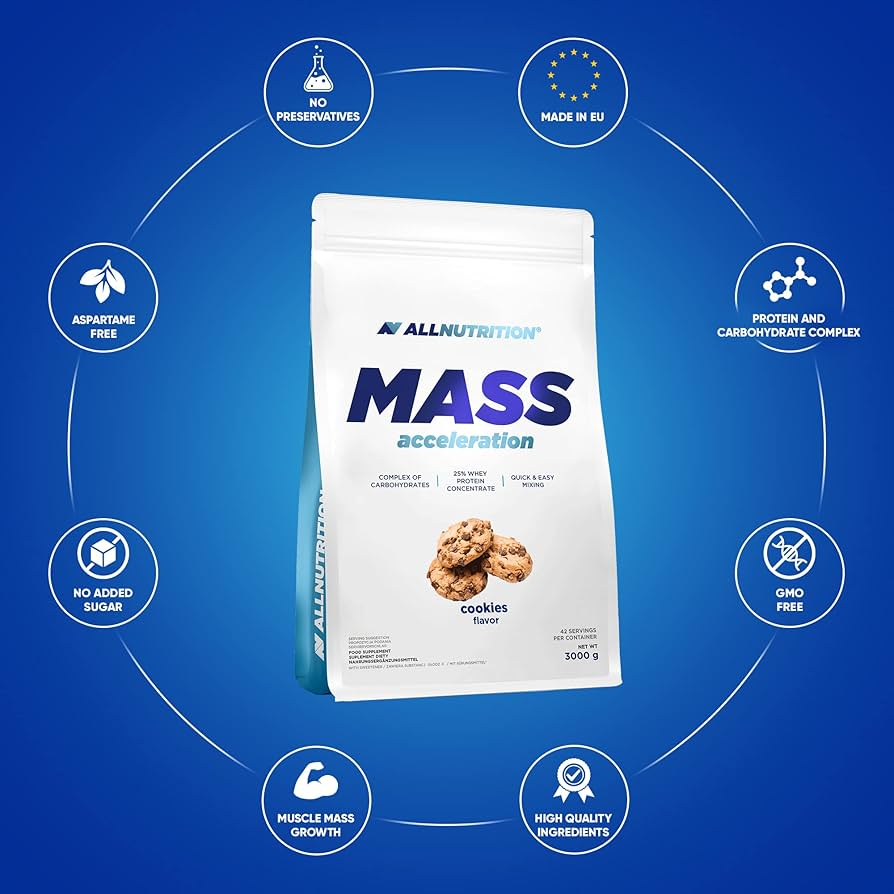Foods to Avoid While on Saxenda

Related products
Why Diet Matters When Taking Saxenda
Why diet matters when you're on Saxenda cannot be stressed enough. Saxenda, a prescription medication designed for weight management, can work wonders-but only if you maintain a balanced diet. Combining medication with proper nutrition isn't just a good idea; it's a crucial element for optimising the drug's efficacy. You may be tempted to rely solely on medication, but experts say that would be a grave mistake.
"The effectiveness of Saxenda, or any weight management medication for that matter, can be significantly impacted by your diet," says Dr. Rebecca Thompson, a leading dietician in the UK. "You're not only doing a disservice to the medication but also to your overall health by not eating a balanced diet."
Studies back this up, as well. A 2018 report published in the Journal of Obesity and Weight Management showed that patients who combined Saxenda with a balanced diet lost 20% more weight than those who relied solely on the medication. Moreover, the patients who maintained a healthy diet also showed signs of improved metabolism and reduced risk of cardiovascular diseases. Keep in mind that shedding pounds often calls for a holistic method, integrating calorie cutbacks, active and healthy routines, and in certain situations, the suitable use of medical assistance with products like Wegovy.
So why does diet matter so much?
One reason is that eating the right foods can amplify the effects of Saxenda, enabling you to get the most out of your prescription. Also, diet plays a massive role in your general health and well-being; thus, ignoring it while taking medication is like setting off on a voyage with a hole in your boat.
The Importance of a Balanced Diet While on Medication
The importance of a balanced diet goes beyond the realm of Saxenda. When you're on any medication, your body is in a state of increased sensitivity. It's absorbing the medicine and using it to effect changes, whether those are intended to reduce weight, control blood sugar, or achieve some other goal. During this period, the foods you consume can either facilitate or hinder this process.
"Medications often require a particular internal environment to be most effective," explains Dr. Jane Anderson, a pharmacologist. "A balanced diet not only aids in weight loss but can help create that ideal environment for the medication to do its job."
Moreover, a balanced diet while on medication can help minimise side effects. For example, consuming an excess of fatty or sugary foods can counteract the effects of Saxenda and lead to a rise in blood sugar levels, which could exacerbate potential side effects like nausea or dizziness.
Equally essential is the role of diet in nutrient absorption. Vitamins and minerals from a balanced diet aid bodily functions and can complement the medication's action. This synergistic effect can accelerate your journey towards better health and weight management.
What is Saxenda and How Does It Work?
Understanding what Saxenda is and its mechanism of action can empower you to make better decisions when combining it with your dietary choices. Saxenda is a brand name for the prescription medication Liraglutide, which is primarily used for weight management and obesity treatment. It belongs to a class of medications known as GLP-1 receptor agonists.
"Saxenda mimics the GLP-1 hormone, which is released naturally in your intestine. This hormone helps control your appetite by making you feel fuller for longer," says Dr. Simon Kelly, an endocrinologist specialising in weight management.
By stimulating the GLP-1 receptors, Saxenda delays gastric emptying and promotes a feeling of fullness. This can help to reduce overall caloric intake, which, when combined with a balanced diet and regular exercise, can lead to weight loss. This medication is typically administered as a once-daily injection.
However, it's crucial to remember that Saxenda is not a 'magic pill.' It's part of a broader weight management regimen that should include a healthy diet and exercise. A 2019 study in the British Journal of Clinical Pharmacology highlighted that patients who combined Saxenda with lifestyle changes showed more sustained weight loss than those who didn't.
Brief Explanation of Saxenda
Saxenda is available in an injectable form, and it's not suitable for everyone. "This medication is generally prescribed for adults who have an initial BMI of 30 or higher or those who have at least one weight-related health issue, such as hypertension or type 2 diabetes," says Dr. Susan Williams, a general practitioner with a focus on obesity treatment.
The drug is often introduced when lifestyle modifications alone have been unsuccessful. It’s important to consult your healthcare provider for a comprehensive understanding of whether this treatment is suitable for you.
Mechanism of Action
The way Saxenda works is quite fascinating and intricate. "When administered, it engages with the GLP-1 receptors in your body, thereby mimicking the effects of the naturally occurring hormones that control hunger," says Dr. Emily Wright, an expert in pharmacology and weight management. "By doing so, it helps regulate blood sugar levels and delays gastric emptying, which, in turn, reduces calorie intake."
This is why understanding the drug's mechanism is vital, as it allows you to select foods that will complement its action rather than negate it. For example, consuming foods rich in fibre can further slow down gastric emptying, thereby enhancing the medication's effects.
Are There Foods that Can Interact Negatively with Saxenda?
Understanding the potential for food-drug interactions is crucial when taking Saxenda. Certain foods can either amplify or dampen the drug's efficacy, and being aware of this can save you from setbacks in your weight management journey.
The Science Behind Food-Drug Interactions
The science behind food-drug interactions is complex but crucial. "Different foods can impact how drugs are absorbed, distributed, metabolised, and excreted from the body," says Dr. Lisa Edwards, a clinical pharmacologist. Foods high in fat content, for instance, can slow down the absorption of certain medications, thereby decreasing their effectiveness.
Similarly, foods rich in vitamin K like kale and spinach can interfere with blood thinners. While Saxenda is primarily designed for weight management, it's essential to understand that what you eat can significantly influence its effectiveness.
The Risk Factors Involved
The risk factors involved in combining Saxenda with the wrong types of food are not to be ignored. Consuming foods that are high in sugar or fat can negate the drug's effects, making your weight management efforts futile. Moreover, the wrong food choices can exacerbate side effects and even pose risks to your cardiovascular health.
"It’s not just about lessening the effectiveness of the drug but also about the potential harm that could occur," warns Dr. Alan Foster, a cardiologist. "High-sugar and high-fat diets are risk factors for conditions like heart disease and diabetes, and combining these with Saxenda without a balanced diet could potentially lead to a vicious cycle of health problems."
Ultimately, your diet matters a lot when you're taking Saxenda. A balanced diet can optimise the drug's effectiveness, minimise side effects, and provide a myriad of other health benefits. Consult your healthcare provider for personalised advice on how to best combine Saxenda with your dietary habits.
Foods High in Sugar and the Risks Involved
Foods high in sugar present a complex set of challenges when you're taking Saxenda. It's not just about the immediate risks, such as spikes in blood sugar levels; the long-term consequences also can't be ignored. For anyone intent on weight management through Saxenda, understanding the multi-layered impact of sugary foods is paramount.
How Sugar Affects Insulin Levels
The way sugar affects insulin levels is crucial to understanding its broader implications on health and medication efficacy. "When you consume sugar, your pancreas releases insulin to help your cells absorb sugar and convert it into energy. However, excessive sugar can lead to insulin resistance, where your cells become less responsive to insulin," explains Dr. Timothy Evans, a diabetes specialist.
This is not a minor issue. According to a study published in the Journal of Clinical Endocrinology & Metabolism in 2020, insulin resistance can further lead to conditions such as type 2 diabetes, heart diseases, and even some types of cancer. When you're on a medication like Saxenda, designed to help manage weight and, by extension, decrease the risk of these diseases, insulin resistance is counterproductive.
Why These Foods are Detrimental When Taking Saxenda
So why are high-sugar foods particularly detrimental when you're on Saxenda? For starters, these foods counteract the drug's primary purpose: weight management. Consuming foods high in sugar while on Saxenda is like trying to drive with your foot on the brake—it neutralises any progress you might be making with the medication.
"The goal of Saxenda is to help you manage your weight by altering the hormones responsible for hunger and satiety. When you consume sugary foods, you're essentially throwing a wrench into this finely-tuned mechanism," warns Dr. Sarah Mitchell, a weight management consultant.
Furthermore, high-sugar foods can exacerbate some of the drug's side effects like nausea or dizziness. They can also complicate other underlying conditions you might be treating or aiming to prevent through weight management, such as diabetes or heart diseases.
The Impact of Artificial Sweeteners on Saxenda's Efficacy
While many people opt for artificial sweeteners as a 'safer' alternative to sugar, the impact of these sweeteners on Saxenda's efficacy can be complicated. The interaction between artificial sweeteners and this medication is an area that requires careful consideration for anyone planning a comprehensive weight management strategy.
A Look into the Interaction Between Artificial Sweeteners and Saxenda
There's a growing body of evidence that suggests that artificial sweeteners may not be as benign as once thought, especially when taking weight management medications like Saxenda. "Some artificial sweeteners can affect the gut microbiome, potentially impacting the way medications are metabolised," says Dr. Martin Price, an expert in gastroenterology.
Moreover, a 2017 study published in the Canadian Medical Association Journal found that artificial sweeteners could be linked to weight gain and higher risks of obesity, high blood pressure, and heart disease. These factors, when combined with a medication designed for weight management, could undermine the drug's effectiveness.
Expert Opinions and Studies
Many experts caution against the indiscriminate use of artificial sweeteners when taking medications like Saxenda. "It's essential to consult your healthcare provider about your complete diet, including any artificial sweeteners you may be considering, to assess the possible interactions with your medication," recommends Dr. Elizabeth Warren, a registered dietitian with a specialty in drug-nutrient interactions.
Some studies have even shown that artificial sweeteners can affect insulin sensitivity, similar to sugary foods. Hence, the verdict on artificial sweeteners is far from straightforward, and more research is needed to clarify their impact on Saxenda's efficacy.
Foods High in Saturated Fats
Foods high in saturated fats pose yet another challenge when you're on Saxenda. Similar to sugary foods, these can counteract the medication's weight management effects, but they also carry their own set of health risks that extend beyond the waistline.
Why Saturated Fats are a Problem
The issue with saturated fats lies in their ability to raise low-density lipoprotein (LDL) cholesterol, also known as 'bad cholesterol.' "High levels of LDL cholesterol can increase the risk of developing heart disease, which is often a concern for individuals already struggling with weight issues," warns Dr. Catherine Harris, a cardiovascular specialist.
Adding saturated fats into the mix when you're on Saxenda, therefore, can nullify your weight management efforts and add new risks. This becomes particularly problematic if you have pre-existing cardiovascular conditions or are at high risk.
Real-World Examples of Such Foods to Avoid
Common foods that are high in saturated fats include red meat, butter, cheese, and many fast-food items. For instance, a typical fast-food burger can contain more saturated fats than you should consume in an entire day. Pastries, desserts, and certain kinds of processed foods are also significant sources of saturated fats.
"If you're serious about weight management while on Saxenda, it would be advisable to limit or eliminate these kinds of foods from your diet," says Dr. Angela Murphy, a nutritional expert. Replacing them with healthier options like lean proteins, vegetables, and whole grains can enhance Saxenda's effectiveness and improve your overall health.
Dairy Products and Saxenda
If you're on Saxenda for weight management, you may be wondering about the role dairy products play in your dietary regimen. Dairy can be a complex food group to navigate because it includes both beneficial nutrients and some elements that might interfere with the drug.
Types of Dairy That Can Interfere with the Drug
While dairy products like milk, cheese, and yoghurt can be rich sources of essential nutrients, they can also contain high levels of saturated fats and sugars. Dr. Rebecca Smith, a dietitian specialising in weight management, warns, "Full-fat dairy products are often high in saturated fats which, as we discussed earlier, can counteract the weight management efforts made possible by Saxenda. Additionally, dairy products like flavoured yoghurts can have added sugars, making them problematic for the same reasons."
The high-fat content in some dairy products could potentially interfere with the mechanism of Saxenda, which works by mimicking a hormone that controls your appetite. If your body is busy processing high levels of fats and sugars, it may diminish the drug’s effectiveness.
Healthier Alternatives to Consider
It’s not all doom and gloom, though. There are healthier dairy alternatives that can complement your Saxenda regimen. "Opting for low-fat or skimmed milk, yoghurt, and cheese can provide you with the calcium and protein benefits without the added risks of saturated fats," suggests Dr. Laura Allen, a nutritionist. Additionally, there are non-dairy alternatives like almond milk, oat milk, and coconut yoghurt that could be beneficial.
But always remember, before making significant changes to your diet while on medication, consult your healthcare provider for tailored advice that suits your individual needs.
Foods and Beverages High in Sodium
Foods and beverages high in sodium have gained notoriety for good reason, and when you're on Saxenda, you've got even more reasons to be cautious. Excessive sodium is not just a general health hazard; it can also throw a spanner into the works of your medication.
How Sodium Levels Can Affect Saxenda's Effectiveness
Excessive sodium intake can cause water retention, which can, in turn, affect the efficiency of Saxenda. "Sodium impacts fluid balance in the body, and for a drug like Saxenda, which works by regulating hunger hormones and influencing metabolic processes, any imbalance can cause issues," explains Dr. Karen Thompson, a leading expert in endocrinology.
Further, sodium has been linked to high blood pressure, an issue often correlated with weight problems. If you're taking Saxenda to manage weight and lower risks associated with obesity, high sodium levels can counteract these benefits.
The Dangers of Water Retention
Water retention is more than just feeling bloated or uncomfortable; it can lead to swelling in the limbs and even exacerbate heart conditions. "Prolonged water retention can place extra pressure on your blood vessels and heart, something that you would want to avoid, especially if weight management is your goal," says Dr. Simon Nichols, a cardiologist.
By being conscious of your sodium intake, you not only improve the efficiency of your medication but also contribute to better long-term health outcomes.
Energy Drinks and Saxenda
Energy drinks are popular, especially among those who lead busy lives, but when you're on Saxenda, these seemingly harmless beverages can become problematic.
The Negative Impact of Energy Drinks While on Saxenda
Most energy drinks contain high levels of sugar and caffeine, both of which can interfere with Saxenda’s efficacy. "Energy drinks stimulate the release of adrenaline and can lead to insulin spikes, which can disturb the delicate hormonal balance that Saxenda works to maintain," warns Dr. Emily Ford, an expert in metabolism and endocrinology.
Beyond the sugar and caffeine, many energy drinks also contain a range of other stimulants and additives, the long-term effects of which are still not fully understood. These can have unpredictable interactions with medications, including Saxenda.
What Research Says
Studies on the interaction between energy drinks and medications like Saxenda are still in their nascent stages, but preliminary findings raise concerns. A 2019 report in the Journal of the American Heart Association suggested that energy drinks could be linked to heart problems, an issue that often accompanies obesity and weight management challenges.
While further research is needed to draw definitive conclusions, the consensus among experts is to exercise caution. "Until we have more data, it's safer to avoid energy drinks while on medications like Saxenda," advises Dr. Henry Adams, a researcher in pharmaceutical interactions.
To sum it up, every food and beverage choice you make has implications when you're on Saxenda. Knowledge is power, and the more you know about what works and what doesn't, the better you'll be at managing your weight effectively with this medication.
Processed Foods and Prepackaged Snacks
The convenience of processed foods and prepackaged snacks is undeniable, but when you're on a weight management regimen with Saxenda, it's crucial to consider what's actually in these foods. The hidden traps of additives and preservatives could interfere with the drug's efficacy.
The Additives and Preservatives Involved
Processed foods often contain a plethora of additives, ranging from artificial colours to preservatives and flavour enhancers. "Such additives are not just unnecessary; they can also lead to issues like increased inflammation, which interferes with the action of many medications, including Saxenda," explains Dr. Robert Johnson, a dietitian with a focus on drug-nutrient interactions.
Preservatives like sodium benzoate and high levels of salt can also have a deleterious effect on your overall health, contributing to water retention and high blood pressure, issues that could complicate your treatment with Saxenda.
The Impact on Saxenda’s Efficacy
The additives and preservatives in processed foods can interfere with Saxenda in multiple ways. They can add unnecessary calories to your diet, hampering your weight management efforts. Some additives can also influence your gut microbiota, affecting how you metabolise medications. "An altered gut microbiome can have a cascading effect on how well your medication works, making it less predictable and potentially less effective," says Dr. Olivia Collins, an expert in gastroenterology.
Considering the multifaceted ways in which processed foods can impede Saxenda's effectiveness, avoiding them may enhance your chances of success with the medication.
Vegetables and Fruits to Exercise Caution With
Vegetables and fruits are usually the stars of any balanced diet, but some may counteract the effects of Saxenda. It's essential to know which ones to avoid or consume in moderation.
Vegetables and Fruits That May Counteract Saxenda
Starchy vegetables like potatoes and corn, as well as fruits high in sugar like mangoes and grapes, could undermine your weight management efforts. "These foods have high glycemic indexes and can lead to spikes in blood sugar, which can counteract the benefits of Saxenda," warns Dr. Sophia Lewis, a nutritionist specialising in weight management.
The Reason Behind This
The reason these particular fruits and vegetables can interfere with Saxenda lies in their carbohydrate content, which affects blood sugar levels and, in turn, insulin sensitivity. "With Saxenda working to regulate your appetite through hormonal balance, maintaining steady blood sugar levels becomes imperative for the drug to function optimally," explains Dr. Michael Harris, an endocrinologist.
For those concerned about limiting their intake of such nutrient-rich foods, consult your healthcare provider for personalised advice tailored to your medical profile and dietary needs.
Timing of Meals and Saxenda
While we've been focusing a lot on what to eat, it's also vital to consider when to eat, especially in relation to when you take Saxenda. Timing can have a significant impact on the drug's effectiveness and your overall well-being.
When to Take Saxenda in Relation to Meals
Saxenda is typically administered once daily, and the timing of your dose in relation to meals can be crucial. "It's often recommended to take Saxenda in the morning before breakfast to optimise its appetite-regulating effects throughout the day," says Dr. Linda Nelson, a general practitioner with a focus on weight management.
However, your healthcare provider may advise a different timing based on your lifestyle, other medications, or specific health needs. It's essential to follow their recommendations for maximum efficacy.
Foods That Are Easier on the Stomach When Taking Saxenda
Some people experience nausea or digestive discomfort when starting Saxenda. To mitigate these symptoms, opt for foods that are easy on the stomach. "Foods like bananas, rice, and lean chicken are less likely to irritate the digestive system and could make your initiation into the medication smoother," suggests Dr. Elizabeth Grey, a gastrointestinal expert.
Again, personalisation is key. Always consult your healthcare provider for the most accurate and personalised advice.
Intermittent Fasting and Saxenda
Intermittent fasting has become a popular lifestyle choice for many aiming to improve their health and manage their weight. But how does it interact with a medication like Saxenda, which is also aimed at weight management? Understanding this interaction is crucial for anyone considering combining the two approaches.
Interaction Between Intermittent Fasting and Saxenda
At first glance, intermittent fasting and Saxenda may seem compatible since both are designed to help control appetite and weight. However, the interaction isn't as straightforward as one might assume. "Intermittent fasting alters the body's metabolic rhythms, and adding Saxenda into the mix can make those rhythms even more complex," says Dr. Sarah Clark, an endocrinologist.
The appetite-regulating mechanisms of Saxenda might clash with the hunger and feeding cycles set by intermittent fasting, leading to unexpected results or even side effects. For instance, taking Saxenda in the morning while planning to fast until the afternoon could potentially exacerbate the medication's side effects like nausea or dizziness.
What Experts Have to Say
Experts are divided on the wisdom of combining intermittent fasting with Saxenda. "While some studies suggest that intermittent fasting can be effective for weight loss, combining it with other appetite-control measures like Saxenda could be akin to doubling up and may not yield additional benefits," argues Dr. Ian Reynolds, a weight management specialist.
However, others believe that if done cautiously and under medical supervision, the two approaches could complement each other. "In theory, Saxenda could help manage the hunger pangs usually associated with fasting periods, making it easier to stick to an intermittent fasting regimen", Dr. Fiona Williams, a registered dietitian.
Consult Your Healthcare Provider
Given the numerous variables in how food and lifestyle choices can affect Saxenda's efficacy, it's paramount to consult a healthcare provider for personalised advice.
Why It’s Crucial to Have a Personalised Plan
Everyone's body is different, and how you react to Saxenda could be different from someone else. "A tailored plan ensures that you get the most out of your medication, minimising side effects and maximising benefits," advises Dr. Rebecca Davis, a general practitioner.
Whether it's the timing of the medication or food choices that enhance its efficacy, a personalised plan created in consultation with your healthcare provider will cater to your unique needs.
The Role of Healthcare Providers in Optimising Saxenda Treatment
Healthcare providers are trained to understand drug interactions, side effects, and how lifestyle choices can impact medication efficacy. "Regular check-ups while on Saxenda can catch potential issues early and allow adjustments to your treatment plan, ensuring you get the best possible results," says Dr. Nicholas White, a healthcare professional specialising in medication management.
It's essential to maintain an open line of communication with your healthcare provider throughout your Saxenda treatment. Only then can adjustments be made that suit your evolving needs and conditions.
Conclusion
In the quest for better health and weight management, the choices you make can significantly impact the effectiveness of medications like Saxenda. Foods high in sugar and saturated fats, as well as certain beverages and even lifestyle choices like intermittent fasting, can either bolster or hinder your treatment.
Processed foods and their additives, high-sodium foods, energy drinks, and even certain fruits and vegetables can counteract the drug's benefits. Conversely, opting for low-fat dairy, lean meats, and low-sugar foods can enhance Saxenda's effectiveness.
If you're considering an intermittent fasting lifestyle, know that it might affect your Saxenda regimen and consult your healthcare provider for a tailored plan. The complexities of how different variables interact with this medication make personalised medical advice crucial.
Remember, the ultimate goal is to manage your weight effectively and safely. With Saxenda as part of your strategy, make sure every food choice is a step toward that goal. Always consult your healthcare provider to optimise the medication’s effects and to suit your unique needs.



















 Rated Excellent by 26,523+ Reviews
Rated Excellent by 26,523+ Reviews